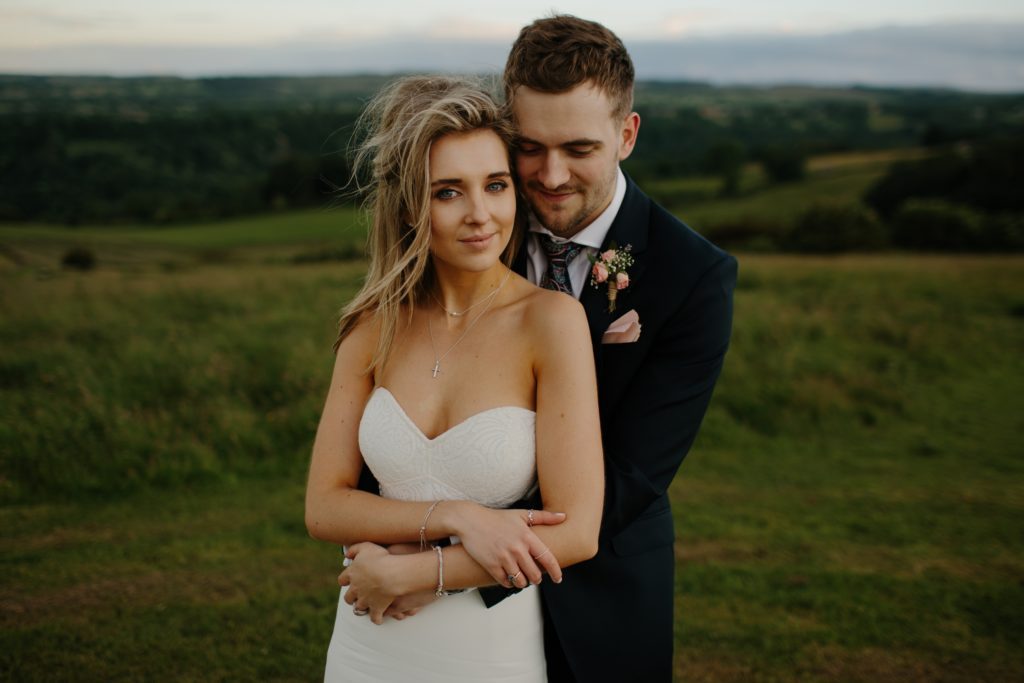Kerry Cronin, professor at Boston College, is well aware of how this new generation has evolved their own values. She speaks of three prominent groups today in the modern dating world.
The first group is made up of those who replace dating with hooking up, or “hanging out’. While this type of casual sex, which on some campuses can involve drunken orgies, tends more to be just a way for two people unknown to each other to let off steam or to fill the void that real relationships used to occupy. Cronin argues that it used to be something that participants were ashamed to admit they’d been a part of. Today, however, many students are made to feel ashamed if they don’t participate in it.
The second group is comprised of what she calls pseudo-married couples. According to Professor Cronin, “These are those who are always together, playing house without commitment. They are “happy” a lot, in annoying ways”.
The third group that she points out are those who opt out of both – “because they are so busy, they can’t find anyone interesting, etc”. In fact, they are really just retreating from the culture of modern dating in despair, burying the energy they would otherwise direct towards dating in a myriad of sports, clubs, volunteer projects etc.
I would add a fourth group here that I find prevalent in those singles who have graduated and now find themselves in the workforce. Now older, yet still single, they yearn for authentic intimacy, something meaningful and long lasting. But holding out for that special someone seems all but impossible, especially when beset by temptations and the call of the Syrens via Facebook, Instagram etc. projecting the happy lives of couples all around them. And so they dip in and out of flings, while still holding a small hope that maybe they’ll stumble upon “the one” in between their moments of despair or just mere relationship malaise.
Moving Towards a Solution: Recovering Intimacy and Interdependence
If I had a quick and easy solution to this worrying problem which threatens to throw marriage and an entire future generation of future children off-balance, I wouldn’t still be single.
But we can start to swing things back in a healthier direction by drawing attention to what values (the ones many of our parents didn’t teach us) lead to a healthy relationship.
Independence, Codependence or Interdependence?
While I was in the Catholic seminary for 11 years, I was taught by my religious superiors to never share with my family anything that was too personal, especially if it involved anything negative about the religious order. Even after my I left the order and my trust in the order had been decimated due to a plethora of scandals that the superiors kept hidden, I continued to apply this terrible principle. At a particularly low time in my journey to recovering after I left the seminary, I found myself standing over a bridge in the middle of the night, ready to jump. Even in the midst of my lowest point, my coping method of remaining completely independent from everyone, even my family and closest friends, nearly killed me.
I am not the only one who has resorted to striving for complete independence as a way of dealing with trust issues.We find ourselves believing that if we never have to rely on anyone for anything, then we’ll never get hurt again. I think many of my generation prize their independence and personal freedom at the expense of authentic freedom, which can never exclude a certain level of interdependence with loved ones.
While I expressed my independence by keeping completely to myself and sharing very little of what was going on in my life with others, many others in the first and third groups that Prof. Cronin points to express their independence through either hooking up as a way to connect with others without having to become vulnerable to them or just finding platonic friendships through volunteering and what-not.
Codependence, on the other hand, is where each partner essentially uses the other (whether voluntarily or not) to fill a void in their lives that they really should fill themselves. This can be found most often in some pseudo-married couples, who remain together because the thought of being alone is too dreadful to them.
While independence is a good thing, even the most solitary person cannot live without a level of interdependence on others, both for emotional and effective support. Alfred Lansing’s book about Sir Ernest Shackleton’s incredible voyage and survival for two years in Antartica illustrates this point. After their ship got stuck between two massive ice floes and was crushed to pieces, Schacklton and his men traveled hundreds of miles floating on a giant ice berg for 6 months, enduring the absolute worst weather on the planet with little to no food at times. After a particularly terrible period, one of the sailors was sick of dragging a 1,200 pound boat through slush ice on top of an ice float lost in Antartica. He stopped tugging and left his fellow men to take on the extra burden. Shackleton tried to reason with him but realized that it was pointless. Only a few hours later, though, he was back tugging away. It was unlikely that the 27 men stuck on an shifting and cracking ice float would survive to tell their tale. But he was certain that without them, he wouldn’t survive a week.
What is Intimacy?
In the midst of their ubiquitous posting and twittering and snapchatting, despite their seemingly constant connecting through all modes of social media, the students I meet speak overwhelmingly about feeling quite disconnected, lonely, and fundamentally not known by others. – Prof. Cronin
The hook up culture is all about not revealing your true self. All of your body language and actions communicates intimacy and deep knowledge of the other. And yet for some it can be challenging just remembering her name…
Prof. Cronin argues that there can’t be intimacy if we don’t first understand the nature of what a true friendship is. She uses Aristotle’s description of what a good friend is. “This type of friend comprehends what is good in me, brings more of that out in me, and wants the best for me. But truly wanting the best for someone involves knowing and seeing who she really is, not merely who she is for me…Intimacy that is found in friendships like this allows us to glimpse the best parts of ourselves and brings those parts into the light.”
So if that is friendship, what is intimacy then?
Common to all of the intimate relationships in my life is one central and abiding fact: that I have the distinct feeling that I matter to the other person. In those relationships, others who love me…share in my cares and concerns because I matter to them. And I in turn am willing to try to enter into the meanings and values of their lives and take their cares and concerns on as my own, not as facts and data, but as something meaningful and moving, because they matter to me. – Prof. Cronin
To encounter another person, to allow yourself to be truly “known” by them and they by you – that is the challenge of intimacy. It requires incredible courage and vulnerability: two things that come with great difficulty to a generation that has survived a legacy of divorce and dysfunctional marriages by remaining fiercely independent of anything and anyone that could endanger our fragile state of emotional equilibrium.
One lesson then, from Prof. Cronin, is that the task of becoming truly intimate with our close friends is what will sustain us and even prepare us for the moment that chance and providence place in our path the “right one”.
But that is not all that she left us. She’s also devised a modern dating method for dating that helps create a framework for dating in a way that elicits authentic intimacy over time. It was designed for college students, but may be applicable to others as well.
The 3 Levels of Dating
Level 1 Dating
Principle: First 3 dates. Its reconnaissance work only. you don’t know if you’re gonna like the person or not. It
- Ask the person out in person (face to face) and they have to know its a date
- Ask someone you have a legitimate interest in but maybe not the person I’ve been crushing on for 2 years. I’m just talking to them to find out who they are. Just trying to reveal something about myself, not everything. To reveal oneself to another is an incredible dangerous and amazing thing
- No alcohol or physical interaction during the date
- Should be a daytime thing and not far from where you live or work – so that it doesn’t require too much effort
- End it after 60-90 minutes. If the date is going really well, end it at 60, because it leaves someone wanting more
- At the end of the date, you can have an A-frame hug (non-committal hug). Try during the date to find out how to send and receive signals.
- You should not go to level 2 if there’s not interest in dating him/her. Know how to let someone down with dignity if he/she’s not the one. “I think you’re a great person but you’re not for me.”
- You can be casually dating several people at one in level 1. No kissing though. Once you’re kissing you’re moving to level 2
Level 2 Dating
Principle: You know you’re romantically interested in them and vice versa
- Level 2 is exclusive
- Kissing is ok.
- Dates can be longer than 90 minutes. Can be at night. etc.
- There is no limit to how long this period is (within reason)
- Everybody is responsible for his or her feelings. No one is taking the burden of someone else’s heart yet. That is level 3 dating
Level 3 Dating
Principle: Involves the Define the Relationship Talk.
- For those looking into religious life, they should stay only in level 1 or 2.
- True relationship status is only in level 3
- This is the stage where you’re actively looking to see if marriage is in a future possibility.
Conclusion
What do you think about the dating practices that Prof. Cronin came up with? Do you think they would work for adults or are they over-simplistic? How do you think modern dating should be? What would you like to see in dating? Is there hope for modern true love? Leave your answers in the comments section.
About The Author

(ex)Catholic monk. Founder of Man Fully Alive. Combining ancient spiritual wisdom with modern breakthroughs for Christian men seeking more.



